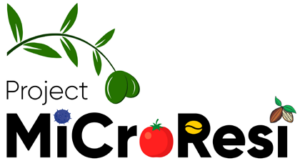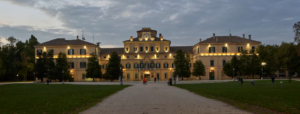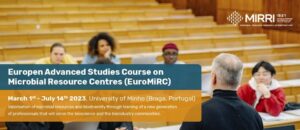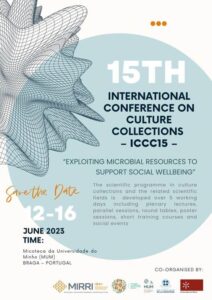Home » Articles posted by Sandro Contaldo
Author Archives: Sandro Contaldo
XIV National Conference on Biodiversity
The 14th National Conference on Biodiversity will be organized by the Department of Biological and Environmental Sciences and Technologies of the University of Salento.
The scientific event is organized in collaboration with the Academy of Mediterranean Biodiversity Sciences (ASBM – https://accademiabiodiversita.it/) and also represents the 1st International Conference on Mediterranean Biodiversity.
The conference, centred on the theme “Biodiversity, resilience and climate change” intends to promote the advancement of knowledge on biodiversity, and evaluate the impact of climate change on biological diversity by outlining intervention models and possible solutions aimed at protecting and enhancing biodiversity.
WHEN: 13th – 15th September 2023
For more info: Click here
XIX Congress of European Mycologists
The European Mycological Association, The Italian Botanical Society and the University of Perugia are very pleased to invite you to the XIX Congress of European Mycologists, Perugia – Italy September 4th-8th 2023.
The Congress will take place in the historical old part of fascinating Perugia city localized in central Italy and will host international speakers and experts in various fields of Mycology.
The Congress keynote lectures, session talks and poster presentations will focus on fungi in changing ecosystems, fungal diversity and conservation, fungal omics, medicinal mushrooms, mycomaterials, data management of fungi, fungi in the bioeconomy and the circular economy, emerging pathogenic fungi.
Specific symposia will be on Open Science and Mycology by young scientists.
The Organizing Committee
- Izabela Kałucka (EMA),
- Solveig Tosi (IBS working group for mycology),
- Paola Angelini (University of Perugia).



Web seminar on “Colture starter artigianali”
“Strengthening the MIRRI Italian Research Infrastructure
for Sustainable Bioscience and Bioeconomy”
Granted by the European Commission – NextGenerationEU
Web seminar on
Le colture starter artigianali: un patrimonio da difendere
per la tutela della biodiversità e della sovranità alimentare
(in Italian)
Giovedì 27 Aprile 2023 – ore 16:30 – 18:30
Thursday April 27, 2023 – 16:30 – 18:30 CEST
Web: https://meet.google.com/poi-hhkg-vcv
Under the Patronage of
“SIMTREA – Società Italiana di Microbiologia Agro-Alimentare e Ambientale”
MiCroResi & MIRRI-IT

Deciphering microbiomes from extreme environments
for the improvement of crop resilience
to climate change, food security and safety
Kick-off Meeting
19 April 2023
The meeting aimed at showing the general program of partners participation to complete the main goals of the project. The parties were:
- Universidad Nacional Toribio Rodriguez de Mendoza, UNTRM, Amazonas. Party leader: Dr. Danilo E. Bustamante Mostajo
- Universidad Mayor de San Andres (UMSA), Bolivia. Party leader: Dr. Carla Fabiana Crespo Melgar
- Consiglio Nazionale delle Ricerche, Istituto per la Protezione Sostenibile delle Piante (CNR-IPSP), Italy. Party leader: Dr. Giovanni Nicola Bubici
- Agencia Estatal Consejo Superior de Investigaciones Científicas, M.P. (CSIC), Spain. Party leader: Dr. Maria Luz Cayuela
- Sakarya University (SAU), Turkey. Party leader: Dr. Semanur Yıldız
Prof. Cristina Varese, Coordinator of MIRRI-IT, attended the meeting and presented the JRU, its collaboration with the MIRRI Research Infrastructure and the aims of the newly funded project SUS-MIRRI.IT.
During its presentation, prof. Varese also expressed its support to the new project and a tight collaboration between MiCroresi and MIRRI-IT.
ISIDORe First Aniversary Meeting
ISIDORe Annual Meeting
Wednesday March 29, 2023
One year ago, “Integrated Services for Infectious Disease Outbreak Research” (ISIDORe) was launched with an ambition to propose a new approach to epidemic preparedness and response research in Europe. Coordinated by ERINHA and involving all major European Research Infrastructures and infectious disease networks, ISIDORe assembles and provides free access to an unprecedented One Health-driven integrated portfolio of cutting-edge research resources, dedicated to the study of epidemic-prone diseases.
During its first year, the ISIDORe programme supported rapid research response and epidemic preparedness research by launching calls for proposals targeting SARS-CoV-2 variants, Monkeypox virus and a large variety of pathogens included in the priory list of pathogens for epidemic preparedness.
As part of its first annual meeting, the ISIDORe first anniversary half-day event is open to external audiences and will gather speakers from the key European infectious disease funding and policy-making bodies, relevant initiatives, as well as the ISIDORe project. The event will provide an insight to the ongoing European efforts in the field of pandemic preparedness and response, and will showcase the outcomes of the ISIDORe supported research projects.
The participation is free but the registration is mandatory.<(b>
Register at https://forms.gle/aCPfVPQgboQBXZ5Y9

MD23 Second announcement
7th INTERNATIONAL CONFERENCE ON MICROBIAL DIVERSITY
“Agrifood microbiota as a tool for a sustainable future”
September 26-29, 2023
Paganini Congressi – Parma (Italy)
https://www.paganinicongressi.it/#paganini-congressi

On behalf of the Italian Society of Food, Agricultural and Environmental Microbiology (SIMTREA), it is a pleasure to announce the 7th International Conference on Microbial Diversity 2023, that will take place in Parma from 26 to 29 September 2023, at the Paganini Congressi. The Conference is organized by University of Parma and SIMTREA.
The MD is a prestigious International congress that has seen its number of participants increasing over the years and that brings together researchers and professionals working on agricultural, environmental and food microbiology from all over the world.
The theme of 7th Edition of MD is “Agrifood microbiota as a tool for a sustainable future” and includes four sessions: FOOD microbiota as a tool for a sustainable future; HUMAN microbiota as a tool for a sustainable future; ENVIROMENT microbiota as a tool for a sustainable future; Sustainable future has come.
Parma is the right place in the right moment to host the MD 2023 as it is the cradle of many ideas in just as many fields of research and is hosting several events bringing together people from all over the World. The world population is continuously increasing, facing problems such as Food security, Food safety, Climate changes, Pandemic. The agrifood microbiota and its diversity would be the key tool for a sustainable future.
Share thoughts and ideas for these ambitious goals in Parma!
WEBSITE AND CONTACTS
Website
Information on the MD23 can be found at https://www.md23.simtrea.org/
Contacts
For scientific, organising and general information matters, contact the MD23 secretariat: secretariatMD23@simtrea.org
For payment matters, contact the SIMTREA treasury: tesoreria@simtrea.org
SCIENTIFIC PROGRAMME
The MD23 programme will include: 5 thematic sessions, 3 invited plenary lectures, 4 invited keynote lectures, 16 presentations, 20 short presentations, 5 poster session.
The Scientific Programme will start on Tuesday 26 September 2023 at 16:30 by the Opening lecture given by Prof. Marco Gobbetti. On the same day, the Welcome Ceremony will be held at the University of Parma Central Palace.
On Wednesday 27 September 2023, the programme will start at 9:00 with the Plenary Lecture given by Prof. Paul Cotter that will introduce the session on “FOOD microbiota as a tool for a sustainable future”.
In the afternoon, starting at 14:00, the programme wil continue with the keynote lecture – Prof. Sarah Lebeer, introducing the Session on “HUMAN microbiota as a tool for a sustainable future”.
On Thursday 28 September 2023, the Session on “ENVIROMENT microbiota as a tool for a sustainable future” will be open at 9:00 by the Plenary lecture given by Prof. Peiying Hong. In the afternoon, the keynote lecture given by Prof. Daniele Daffonchio will introduce the session on “Exploiting microbiomes for a sustainable future”. The Gala Dinner will end the day starting at 20:00.
On Friday 29 September 2023, the final session on “Sustainable future has come” will be introduced by the Keynote lecture given by Proff. Daniele del Rio and Danilo Ercolini. The conference will officially close before Lunch. In the afternoon, the SIMTREA meeting will be held.
CONFIRMED INVITED SPEAKERS
- Prof. Paul Cotter (Teagasc & SeqBiome, University of Cork, Ireland)
Plenary lecture: A MASTER Plan: Leveraging food and food chain microbiome data for a sustainable future - Prof. Daniele Daffonchio (King Abdullah University of Science and Technology, Saudi Arabia)
Keynote lecture: Ecology of the thermal adaptation of microbial communities in time and space - Prof. Daniele Del Rio (University of Parma, Italy)
Keynote lecture: Research and innovation network on Food and Nutrition Sustainability, Safety and Security: the ONFOODS national partnership - Prof. Danilo Ercolini (University of Naples Federico II, Italy)
Keynote lecture: The National Center for the Development of New Technologies in Agriculture (Agritech): Microbiota as tools for a sustainable development of agri-food production - Prof. Marco Gobbetti (Libera Università di Bolzano, Italy)
Opening plenary lecture: How to manage with fermentation microbiomes: metabolic framework of spontaneous versus synthetic metacommunities. - Prof. Peiying Hong (King Abdullah University of Science and Technology, Saudi Arabia)
Plenary lecture: Building a resilient and sustainable water system for our future urban farms - Prof. Sarah Lebeer (University of Antwerp, Belgium)
Keynote lecture: The uniqueness of the microbiome of the human reproductive tract
ORGANIZING COMMITTEE
Erasmo Neviani (University of Parma, Italy), Monica Gatti (University of Parma, Italy), Camilla Lazzi (University of Parma, Italy), Valentina Bernini (University of Parma, Italy), Benedetta Bottari (University of Parma, Italy), Elena Bancalari (University of Parma, Italy), Alessia Levante (University of Parma, Italy), Annalisa Ricci (University of Parma, Italy), Jasmine Hadj Sadoun (University of Parma, Italy), Francesco Martelli (University of Parma, Italy), Luca Bettera (University of Parma, Italy), Laura Troiani (University of Parma, Italy), Saverio Monica (University of Parma, Italy), Martina Marrella (University of Parma, Italy), Luca Fontechiari (University of Parma, Italy), Claudia Della Pina (University of Parma, Italy), Gaia Bertani (University of Parma, Italy), Laura Marchi (University of Parma, Italy), Teresa Zotta (University of Basilicata, Italy).
SCIENTIFIC COMMITTEE
Paul Cotter (Teagasc Food Research Centre, University of Cork, Ireland), Daniele Daffonchio (King Abdullah University of Science and Technology, Saudi Arabia), Daniele Del Rio (University of Parma, Italy), Danilo Ercolini (University of Naples Federico II, Italy), Marco Gobbetti (Libera Università di Bolzano, Italy), Peiying Hong (King Abdullah University of Science and Technology, Saudi Arabia), Sarah Lebeer (University of Antwerp, Belgium), Erasmo Neviani (University of Parma, Italy), Monica Gatti (University of Parma, Italy), Camilla Lazzi (University of Parma, Italy), Valentina Bernini (University of Parma, Italy), Benedetta Bottari (University of Parma, Italy), Elena Bancalari (University of Parma, Italy), Alessia Levante (University of Parma, Italy), Annalisa Ricci (University of Parma, Italy), Jasmine Hadj Sadoun (University of Parma, Italy), Francesco Martelli (University of Parma, Italy), Rosalba Lanciotti (University of Bologna, Italy), Luca Cocolin (University of Turin, Italy), Carlo Giuseppe Rizzello (University of Rome, Italy), Olimpia Pepe (University of Naples, Italy), Monica Agnolucci (University of Pisaa, Italy), Luca Settanni (University of Palermo, Italy), Teresa Zotta (University of Basilicata, Italy), Maria De Angelis (University of Bari, Italy), Pier Luigi Cardinali (University of Perugia, Italy), Cinzia Caggia (University of Catania, Italy).
PRACTICAL INFORMATION
Registration Deadlines (all deadlines at 23:59 CET)
- Early Bird Registration – by July 20th, 2023
- Late Registration (bank transfer) – by August 15th, 2023
- Late Registration (credit card or PayPal) – by September 1st, 2023
Registration Fees
- SIMTREA Members (early bird): 430 €
- SIMTREA Members (late registration): 510 €
- Non-members (early bird): 460 €
- Non-members (late registration): 510 €
- Student (early bird): 300 €
- Student (late registration): 350 €
All registration fees include access to all scientific sessions, poster exhibition, welcome ceremony, coffee/tea breaks, lunch breaks.
Student fee is only applicable for PhD students, post doc with short term contract (Research fellow)
Abstract information
- Abstract submission: March 20th – May 15th, 2023
- Notification of acceptance or rejection of abstracts: by July 1st, 2023
- Notification for abstract eligibility as a presentation/short presentation: by July 1st, 2023
GENERAL INFORMATION
The Organizers
About SIMTREA: Italian Society of Agro-Food and Environmental Microbiology. SIMTREA was founded on 15 February 1994 in Milan (Italy), and is a non-profit membership organization of scientists who work in the fields of agricultural, environmental and food microbiology. The Society promotes the understanding of microbiology to different stakeholders, including policy makers, students, and teachers. Since 2011, SIMTREA organizes the biennial International Conference on Microbial Diversity aimed to promote discussion and exchange of information and experiences on the complexity and powerfulness of microbial biodiversity (https://www simtrea org/).
About University of Parma: The University of Parma (UNIPR, https://www.unipr.it/), whose origins date back to 962 AD, is one of the oldest universities in the world and one of the best-known in Italy. Today it has 1,300 employees and more than 30,000 students who work and study on three campuses. UNIPR has 98 degree courses (11 in English), 21 research doctorates, and 39 masters coordinated in 9 academic Departments. Departments in the areas of social sciences and humanities, medicine and surgery, and veterinary sciences are located in the city centre. The other Departments (agri-food areas, pharmacy, engineering and architecture, mathematical, physical, and natural sciences) are located in the Scientific and Technological Campus, an area of 77 hectares in the southern part of the city, which also holds facilities for staff and students, for sports and recreational activities. The Campus also houses the Technology Transfer Office, which plays a valuable role in the protection and commercialization of intellectual property developed by UNIPR researchers. Within the Campus, there is also an important Industrial Technopole, an infrastructure that houses innovative research centres and laboratories for industrial research and technological development. The Technopole favours the meeting between companies and researchers by reducing the distance between supply and demand for innovation. UNIPR brings together a strong interdisciplinary team involving agricultural sciences. In the Science and Technology Campus, there is also “The Food Project Area” (https://www foodproject unipr.it/). The Food Project is promoted by UNIPR to establish and strengthen the already existing skills of excellence in the field of research and teaching in the agri-food sector. The Department of Food and Drug Sciences (hiips://saf.unipr.it/it), through consistent high-quality scientific production, is placed on the national and international scene as a centre of excellence in research and training related to the pharmaceutical and biomedical fields, focusing attention on the discovery of new drugs, nutraceuticals, supplements, cosmetics, medical devices, and their correct use and access for efficient pharmaceutical assistance, as well as to the agri-food world, focusing attention on quality, safety, typicality of foods, technological innovation, design of new foods and new production processes, assessment of product sustainability.
LOCATION
Congress venue – Paganini Congressi
Paganini Congressi, events and conference factory https://www paganinicongressi it/
Via Toscana 5/a, 43121 Parma, Italy
Map: https://goo.gl/maps/xwwkAp9gJBjVDdmp7
About Parma
Parma is the 2nd largest city in the Emilia-Romagna region and is famous for its delicious food products, heart of the Italian Food Valley; Parma has obtained UNESCO’s recognition as “Creative City of Gastronomy”. Romanesque buildings, including the frescoed Parma Cathedral and the pink marble baptistry, adorn the city centre. Cradle of opera, birthplace of Giuseppe Verdi, Parma is also renown for the Teatro Regio, a 19th century opera house. Inside the imposing Palazzo della Pilotta, the Galleria Nazionale, displaying works by the 16th century painters Correggio and Canaletto, and the spectacular wooden theatre Teatro Farnese can be visited. The headquarters of the European Food Safety Authority (EFSA) are located in Parma.
Photo credits: Città di Parma https://www flickr com/photos/comuneparma/
HOW TO REACH
Parma is located in Northern Italy, about 100 km from Milan and from Bologna, it is easily reachable by car, train or plane. If you choose to arrive:
By car: Take Motorway A1 Milan-Bologna (exit Parma) and A15 Parma-La Spezia/Genoa (exit Parma Ovest) For info, please visit: https://www.autostrade.it
By train: Most of trains travelling on the Milano-Bologna line stop in Parma, as well as those on Turin-Bologna and Genoa-Bologna lines. Rome and Florence are well connected thanks to high-speed trains in 3.30 hours (Rome) and 1.45 hour (Florence) arriving at Reggio Emilia AV Station. For info, please visit: https://www trenitalia com/ and https://www.italotreno.it
By plane: The International Airports near Parma (about one-hour distance) are Milan Malpensa Airport (180 Km), Milan Linate Airport (120 Km), Bologna Airport (90 Km), Bergamo (162 Km) and Verona (115 Km).
MD23 First Announcement
7th International Conference on Microbial Diversity (MD23)
“Agrifood microbiota as a tool for a sustainable future”
September 26-29, 2023, Parma, Italy

Sessions
- FOOD microbiota as a tool for a sustainable future
- HUMAN microbiota as a tool for a sustainable future
- ENVIROMENT microbiota as a tool for a sustainable future
- Sustainable future has come
The Conference will be opened in the afternoon of Tuesday 26 September 2023 and closed at noon of Friday 29 September 2023. In the afternnon of the last day, the SIMTREA meeting will be held.
Invited speakers (confirmed)
- PAUL COTTER (Teagasc Food Research Centre, University of Cork, Ireland)
- DANIELE DAFFONCHIO (King Abdullah University of Science and Technology, Saudi Arabia)
- DANIELE DEL RIO (University of Parma, Italy)
- DANILO ERCOLINI (University of Naples Federico II, Italy)
- MARCO GOBBETTI (Libera Università di Bolzano, Italy)
- PEIYING HONG (King Abdullah University of Science and Technology, Saudi Arabia)
- SARAH LEBEER (University of Antwerp, Belgium)
PYFF8, June 5-8, 2023, Cork, IE
The Microbial Biotechnology Division of the EFB is delighted to invite scientists from industry and academia to Ireland for the 8th Conference on Physiology of Yeasts and Filamentous Fungi (PYFF8). Since the first meeting in Denmark in 2001, every three years, scientists interested in the fundamental physiology and biotechnological applications of yeast and filamentous fungi have gathered to share latest results, develop new collaborations and reinvigorate networks. The combination of diverse yeasts and fungi facilitates cross-disciplinary exchange as researchers study shared themes using similar technologies. Themes include evolution and adaptation, stress response and resilience, metabolism and systems biology, while technologies such as functional genomics, metabolic engineering, genome editing, and synthetic biology are commonly applied to both yeast and filamentous fungi.
The organisers are especially keen to support the attendance of early career researchers and there are good opportunities to speak and present posters. In addition, the conference offers a low registration rate (€400/€500) (see Registration) as well as affordable on-campus accommodation (see General Information). There is also the opportunity to apply for a bursary to support costs as well as a discount for groups sending multiple attendees (see Registration).
PFYY8 will be hosted by University College Cork (UCC) in Cork, Ireland. Cork is a port city and a destination in its own right, as well as the gateway to the Southwest and the starting point for the world-famous Wild Atlantic Way. It is readily accessed by Cork international airport, with daily flights to many European destinations and hubs. Cork city (pop. ~ 200,000) has a vibrant student-centred nightlife with diverse bars and restaurants as well as many day-time attractions including harbour tours, food markets, churches, museums and a historic city centre. UCC is located on the banks of the river Lee only 1km from the city centre and is a modern University of 22,000 students with a proud heritage dating back to 1849. The University has a strong scientific pedigree and is especially active in research related to biotechnology, sustainability, food and the bioeconomy. The conference will be hosted on the historic main campus and in modern University buildings. The location of the university and the availability of student accommodation means that a wide range of budget accommodation and hotels are available for delegates. UCC and Cork welcome you!
EuroMiRC Advanced Studies Course
EuroMiRC Advanced Studies Course first edition

Applicants can submit their proposals from February 6th to February 15th, 2023
The European Advanced Studies Course on Microbial Resource Centres (EuroMiRC) aims to create a new generation of highly qualified professionals that will work in microbial Culture Collections (CC) or in the more advanced concept of Microbial Resource Centres (mBRCs).
General objectives of EuroMiRC
EuroMiRC intends to impact beyond the borders of CC/mBRCs by covering competencies required at different phases of the CC/mBRCs lifecycle. The EuroMiRC curricula program is designed to:
- integrate scienticompetenciesnces and management skills to access, preserve and supply microbial genetic resources and other related services;
- disseminate skills on management of Microbial Resources Centres under quality control standards and in compliance with the legal frameworks;
- appraise the valorization chain of the microbial diversity long-term preservation.
By the end of this course, students will be able to:
- explain the role of CC/mBRCs resources as an asset for the advancement of life sciences and biotechnology;
- describe the most frequent long-term microbial preservation methods;
- formulate strategies to implement a long-term microbial preservation plan;
- design operation strategies taking into consideration the long-term impact of quality control and risk assessment at CC/mBRC;
- implement strategies on CC/mBRC to fitness for the intended purpose under different legal, standards and regulatory requirements;
- recognize the different options to apply information technologies and data management tools to CC/mBRC.
Who should apply?
The EuroMiRC vision is to develop a new generation of CC/mBRCs professionals who recognize the necessity of undergoing advanced training to acquire state-of-the-art technical and managerial skills tailored to provide and perform better CC/mBRCs services to the user communities.
EuroMiRC is primarily aimed at:
- Doctoral students (3rd cycle);
- Post-doctoral researchers;
- and any professionals that want to acquire high-level international and management-oriented competencies in Microbial Resources Centres.
Course fees for the first edition can be waived under the IS_MIRRI21 project.
How will EuroMiRC function?
The course is hosted by the University of Minho (Braga, Portugal) and will take place in blended learning (b-learning) format between March 1st and July 14th, 2023.
To access detailed information on the course program and the application process, visit the page on IS MIRRI website: https://ismirri21.mirri.org/project-platforms/euromirc_edition_1/#jet-tabs-control-1132.
ICCC15 Announcement
MUM and MIRRI will organise the next ICCC15 in Braga
  |
The Micoteca da Universidade do Minho (MUM), in collaboration with the Chilean Universidad de La Frontera (UFRO), the IS_MIRRI21 EU project (https://ismirri21.mirri.org/), MIRRI-ERIC (https://www.mirri.org/), the Portuguese microBiological Resource Centre Network / MIRRI-PT Node (Pt-mBRCN, https://mbrcn.pt/), the Portuguese Society of Microbiology (SPM, https://spmicrobiologia.wordpress.com/) and the Portuguese Society of Biotechnology (SPBT, https://www.spbt.pt/), is very pleased to announce that the next 15th International Conference on Culture Collections (ICCC15) will be held in Braga, from 12 to 16 June 2023. |
The ICCC is a regular conference organised by the World Federation for Culture Collections (WFCC, https://www.wfcc.info/) which represents 832 Culture Collections from 78 Countries and Regions, and collectively preserved more than 3.3 million microorganisms available for different user communities.
MUM is very proud to host this international conference with the motto “Exploiting Microbial Resources to Support Social Wellbeing” and that is for the first time organised by Portugal. MUM over the years has been involved in the Executive Board (EB) of WFCC making significant contributions to the progress of the state-of-the-art long-term management of microbial preservation. Currently, the MUM Quality Manager is a member of the EB.
As President of the Local Organised Committee, prof. Nelson Lima invites everybody to save the dates 12-16 June on his agenda and wishes that their participation and contributions will enrich the scientific programme that will be available soon.


